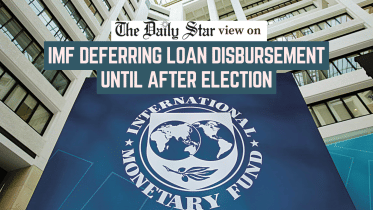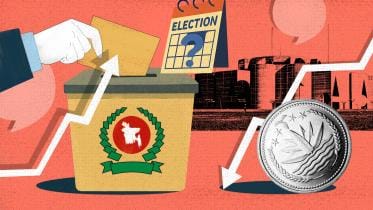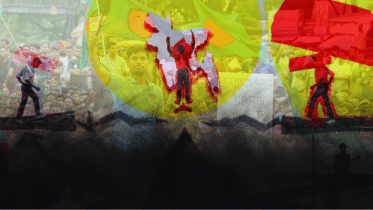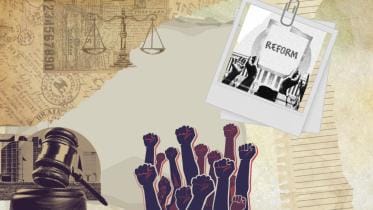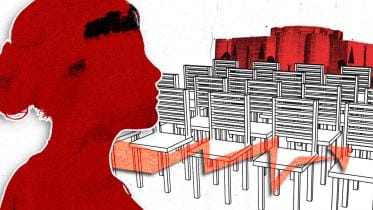national election 2025
Timely election must for economic stability
IMF’s loan disbursement delay is a clear message for govt, political parties.
23 October 2025, 15:00 PM
The economic cost of delaying the election
The political vacuum that Bangladesh finds itself in is not just a constitutional or moral problem.
11 September 2025, 06:00 AM
Elections belong to the people, not the politicians
An election that reflects people’s choices and an elected government that carries out their mandate will show whether the hope created by the uprising will be turned into meaningful change.
29 August 2025, 03:00 AM
A non-inclusive July Charter will be a betrayal
If the charter turns out to be a document that serves only the majority and the powerful, and if it is imposed upon the rest, it will be a huge disappointment.
27 August 2025, 07:00 AM
Election Commission must create a level playing field for all
A recent report by the Transparency International Bangladesh (TIB) has presented an unflattering portrayal of ongoing political and administrative practices.
8 August 2025, 03:00 AM
From oligarchy to citizen's republic: Reforming Bangladesh's executive branch
The tripartite patronage of business, politics, and bureaucracy forms the bedrock of the oligarchic structure, where business elites fund political campaigns and gain legislative favours.
17 July 2025, 03:00 AM
Turning reserved seats into real power for women
We began with 15 reserved seats in 1972. Today, there are 50. On paper, this expansion signals progress.
24 June 2025, 03:00 AM
